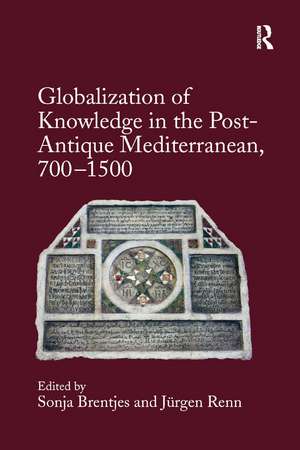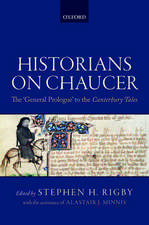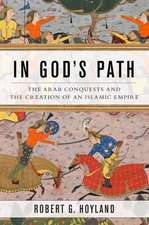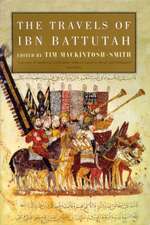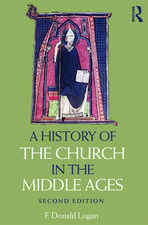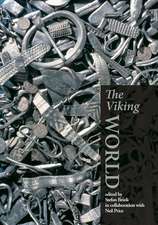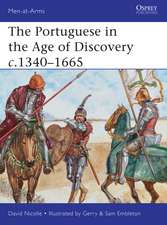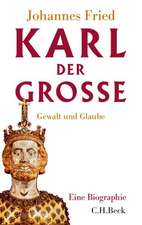Globalization of Knowledge in the Post-Antique Mediterranean, 700-1500
Editat de Sonja Brentjes, Jürgen Rennen Limba Engleză Paperback – 30 iun 2020
| Toate formatele și edițiile | Preț | Express |
|---|---|---|
| Paperback (1) | 264.59 lei 6-8 săpt. | |
| Taylor & Francis – 30 iun 2020 | 264.59 lei 6-8 săpt. | |
| Hardback (1) | 820.71 lei 6-8 săpt. | |
| Taylor & Francis – 3 mai 2016 | 820.71 lei 6-8 săpt. |
Preț: 264.59 lei
Preț vechi: 313.81 lei
-16% Nou
Puncte Express: 397
Preț estimativ în valută:
50.63€ • 52.76$ • 41.92£
50.63€ • 52.76$ • 41.92£
Carte tipărită la comandă
Livrare economică 03-17 aprilie
Preluare comenzi: 021 569.72.76
Specificații
ISBN-13: 9780367879662
ISBN-10: 0367879662
Pagini: 256
Dimensiuni: 156 x 234 mm
Greutate: 0.68 kg
Ediția:1
Editura: Taylor & Francis
Colecția Routledge
Locul publicării:Oxford, United Kingdom
ISBN-10: 0367879662
Pagini: 256
Dimensiuni: 156 x 234 mm
Greutate: 0.68 kg
Ediția:1
Editura: Taylor & Francis
Colecția Routledge
Locul publicării:Oxford, United Kingdom
Cuprins
Introduction, Renn and Brentjes / From one universal historiography to the other: the reorientation of ancient historiography in Byzantium and its reception in Arabic - The Islamic organization of written memory, Niehoff-Panagiotidis / Aspects of craft in the Arabic book revolution, Gruendler / Contexts and content of Thābit ibn Qurra’s (died 288/901) construction of knowledge on the balance, Brentjes and Renn / Monarchs and minorities: ‘infidel’ soldiers in Mediterranean courts, Fancy / The Synonyma literature in the 12th and 13th centuries, Burnett / The cultural transfer of Zaydī and non-Zaydī religious literature from northern Iran to Yemen (12th century through 14th century), Ansari and Schmidtke / Iskandar the prophet: religious themes in Islamic versions of the Alexander legend, Akasoy / Postface, Brentjes and Renn / Index.
Notă biografică
Sonja Brentjes is researcher at the Max Planck Institute for the History of Science in Berlin and member of the International Academy for the History of Science in Paris. She studies the institutional and intellectual history of the sciences in past Islamicate societies (patronage, madrasas, translations, maps, sciences and the arts), cross-cultural encounters in Africa, western Asia and Europe and historiographical issues of the narration of the sciences in Islamicate societies in their relationship to antiquity, the Middle Ages and the early modern period. Jurgen Renn is Director at the Max Planck Institute for the History of Science in Berlin and Honorary Professor for History of Science at both the Humboldt-Universitat zu Berlin and the Freie Universitat Berlin. His research looks at structural changes in systems of knowledge with the aim of developing a theoretical understanding of knowledge evolution, taking into account its epistemic, social and material dimensions. As groundwork for such a theoretical approach to the history of knowledge, he studies some of the great transformations of systems of physical knowledge, such as the origin of theoretical science in antiquity, the emergence of classical mechanics in the early modern period and the revolutions of modern physics in the early twentieth century.
Recenzii
‘The editors assume that after the disintegration of the Roman Empire the Mediterranean continued to be a highly integrated region. Despite a growing political, economic and cultural diversity people, artefacts, ideas and knowledge continued to move back and forth between the Mediterranean, the Arabian peninsula, the Indian subcontinent and central Asia… The focus of the contributions is on the circulation of scholarly knowledge and the forms of its transmission…Texts of this kind will expand our future knowledge of intercultural transfers and will increase the Mediterranean region's visibility as a zone of integration.’ H-Net Reviews; October 2016
Descriere
The contributions to this volume enter into a dialogue about the routes, modes and institutions that transferred and transformed knowledge across the late antique Mediterranean and the Persian Gulf. Each contribution not only presents a different case study but also investigates a different type of question, ranging from how history-writing drew on
